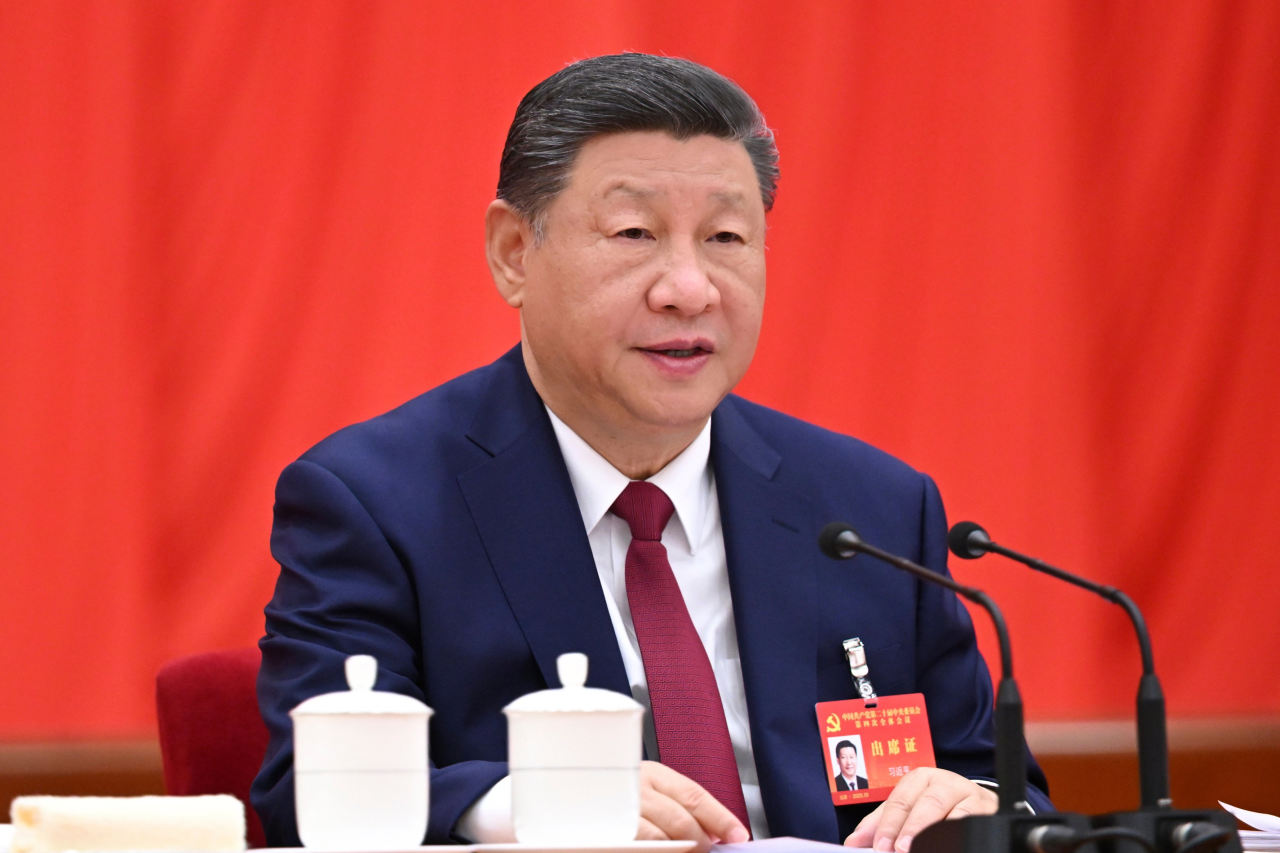World
Xi Jinping Pressures U.S. on Taiwan Independence Stance

China’s President Xi Jinping has intensified pressure on the United States regarding Taiwan, urging Washington to oppose any moves towards the island’s independence. This statement comes as tensions between the U.S. and China continue to escalate, particularly in relation to Taiwan’s political status.
In a recent address, Xi emphasized the importance of maintaining stability across the Taiwan Strait. He underscored that any declaration of independence by Taiwan would lead to severe repercussions. This warning aligns with the Chinese government’s long-standing position that Taiwan is a part of its territory and should not pursue separate governance.
U.S. Response to China’s Demands
The U.S. has maintained a policy of strategic ambiguity concerning Taiwan, supporting the island’s democratic governance while officially recognizing the One China policy. Donald Trump, the former U.S. president, is expected to address this issue in his upcoming remarks scheduled for January 2025. During his previous term, Trump took a more confrontational approach towards China, which included arms sales to Taiwan and high-profile visits by U.S. officials to Taipei.
Xi’s remarks come as the Chinese Communist Party prepares for the upcoming National People’s Congress, where issues concerning national sovereignty and territorial integrity are likely to be central themes. Chinese officials have reiterated that they will not tolerate any actions perceived as stepping towards Taiwan’s independence.
The relationship between China and Taiwan remains delicate. In recent months, military drills by the People’s Liberation Army near Taiwan have raised alarms in Washington and among Taiwan’s government officials. The U.S. has responded by increasing its support for Taiwan, including defensive arms sales and military training initiatives.
Implications for Regional Stability
The implications of Xi’s statement extend beyond just U.S.-China relations; they could significantly impact regional stability in East Asia. Taiwan’s strategic location and its democratic governance make it a focal point in the broader geopolitical struggle between China and the U.S.
Analysts suggest that any aggressive action from China could trigger a response from the U.S. and its allies in the region, including Japan and Australia. The potential for miscalculation in this high-stakes environment is significant, with both sides facing pressure from hardline factions within their governments.
As the situation develops, international observers will be watching closely for any shifts in U.S. policy or Chinese military posturing. The outcome of this ongoing tension could shape the future of U.S.-China relations and the stability of the Indo-Pacific region for years to come.
In conclusion, Xi Jinping’s recent remarks highlight the continuing friction over Taiwan and signal a pivotal moment for U.S. foreign policy. How the Biden administration navigates this challenge could have lasting implications for both American interests and the future of Taiwan.
-

 Sports2 weeks ago
Sports2 weeks agoSteve Kerr Supports Jonathan Kuminga After Ejection in Preseason Game
-

 Politics2 weeks ago
Politics2 weeks agoDallin H. Oaks Assumes Leadership of Latter-day Saints Church
-

 Business2 weeks ago
Business2 weeks agoTyler Technologies Set to Reveal Q3 2025 Earnings on October 22
-

 Lifestyle2 weeks ago
Lifestyle2 weeks agoDua Lipa Celebrates Passing GCSE Spanish During World Tour
-

 Entertainment2 weeks ago
Entertainment2 weeks agoZoe Saldana Advocates for James Cameron’s Avatar Documentary
-

 Science2 weeks ago
Science2 weeks agoChicago’s Viral ‘Rat Hole’ Likely Created by Squirrel, Study Reveals
-

 Lifestyle2 weeks ago
Lifestyle2 weeks agoKelsea Ballerini Launches ‘Burn the Baggage’ Candle with Ranger Station
-

 Health2 weeks ago
Health2 weeks agoRichard Feldman Urges Ban on Menthol in Cigarettes and Vapes
-

 Health2 weeks ago
Health2 weeks agoCommunity Unites for Seventh Annual Mental Health Awareness Walk
-

 World2 weeks ago
World2 weeks agoD’Angelo, Iconic R&B Singer, Dies at 51 After Cancer Battle
-

 Business2 weeks ago
Business2 weeks agoMLB Qualifying Offer Jumps to $22.02 Million for 2024
-

 Sports2 weeks ago
Sports2 weeks agoPatriots Dominate Picks as Raiders Fall in Season Opener








